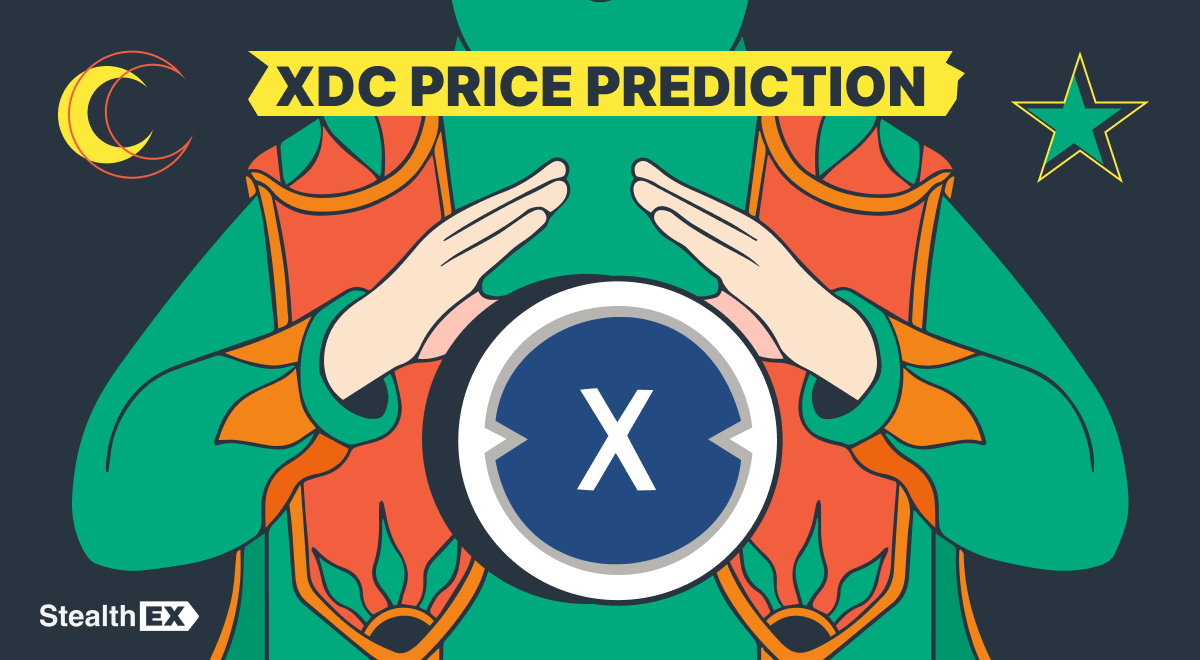USDC on Polkadot, FTX Lawsuit, and SEC Actions: StealthEX x CryptoDaily Digest

In the dynamic sector of crypto, staying informed is crucial. Welcome to our crypto news recap, brought to you by StealthEX and CryptoDaily. We’ve covered you, from market trends to technological advancements, regulatory changes, and major partnerships. Dive in to get a concise overview of the week’s highlights.

Article contents
- 1 Circle Launches USDC On Polkadot
- 2 FTX Sues Founder Bankman-Fried’s Parents
- 3 SEC Planning To Bring Charges Against More Crypto Exchanges
- 4 Binance and Ceffu Counter SEC Allegations
- 5 House of Lords Approves Amendments to Seize Stolen Cryptocurrencies
- 6 It’s Not About Bitcoin’s Price, But How Much You Own
Circle Launches USDC On Polkadot
Circle, the renowned USD Coin (USDC) issuer, has taken a significant step forward by launching Polkadot USDC, a new iteration of its U.S. dollar-pegged stablecoin, on the Polkadot network. This strategic move enhances Polkadot’s ecosystem and underscores Circle’s commitment to expanding its interoperability initiatives.
Polkadot, which came into existence in 2020, is a decentralized platform known for its network of sovereign blockchains called parachains. These parachains synergize to expedite transactions while harnessing Polkadot’s strong security and decentralization features. A key component of Polkadot’s ecosystem, the Polkadot Asset Hub, is designed to manage the issuance and movement of digital assets. The freshly introduced Polkadot USDC is natively issued on this hub, streamlining the process for users to transfer funds to parachains via the XCM protocol.
This integration offers exchanges, institutional traders, developers, and digital wallet users the opportunity to access Polkadot USDC through Circle’s tools, including the Circle Account and Circle APIs. The potential applications range from efficient global payments to 24/7 trading with borrowing and lending features across compatible parachains like Centrifuge, HydraDX, and Moonbeam.
However, Circle has highlighted certain specifications for this new integration. Only Polkadot USDC issued on the Polkadot Asset Hub will be compatible with Circle’s services. Additionally, users are advised to ensure proper transfer protocols, especially when using the XCM protocol.
On a broader scale, USDC’s expansion to Polkadot marks its presence on 14 blockchains, surpassing its primary competitor, USDT, which operates on 11 networks. This development further solidifies USDC’s position in the crypto world.
FTX Sues Founder Bankman-Fried’s Parents
FTX, a cryptocurrency exchange that recently declared bankruptcy, has taken a bold legal step against the parents of its co-founder, Sam Bankman-Fried. The exchange alleges Joseph Bankman and Barbara Fried, both esteemed professors at Stanford Law School, misappropriated company funds for personal benefits.
Under its new CEO, John Jay Ray III, FTX claims the company was essentially a “family business.” It is alleged that Bankman-Fried channeled millions from customer funds to benefit a select inner circle, including his parents. The lawsuit highlights that Joseph Bankman and Barbara Fried received lavish gifts, including a $10 million gift and a $16.4 million luxury residence in the Bahamas, where FTX had its headquarters. These transactions occurred despite the duo being fully aware of FTX Group’s shaky financial standing.
Furthermore, Barbara Fried is accused of having a significant say in FTX’s political contributions. The lawsuit suggests that the couple championed the allocation of substantial company funds for political and charitable endeavors, notably donations to Stanford and the leftwing super PAC, Mind the Gap, which Fried co-founded.
FTX’s lawsuit also points fingers at Joseph Bankman, accusing him of ignoring fraudulent activities within the company. While the couple has remained silent on the lawsuit, their attorneys have vehemently denied the allegations, labeling them “completely false” and viewing the lawsuit as an intimidation tactic.
FTX is on a mission to recover assets to compensate its customers and has successfully reclaimed over $7 billion. The exchange remains committed to pursuing further recoveries through legal actions against insiders and other beneficiaries.
SEC Planning To Bring Charges Against More Crypto Exchanges
The U.S. Securities and Exchange Commission (SEC) is intensifying its scrutiny of the cryptocurrency sector, with plans to bring charges against additional crypto exchanges and decentralized finance (DeFi) platforms. David Hirsch, who leads the SEC’s Crypto Assets and Cyber Unit, has indicated that the regulatory body is set to expand its enforcement actions against entities it believes violate securities laws.
Hirsch’s statements suggest that the SEC’s actions will not be limited to industry giants like Coinbase and Binance. The regulatory body targets dealers, exchanges, crypto brokers, and clearing agencies that may need to adhere to proper disclosures or fail to register with the SEC. Hirsch emphasized that many firms engage in activities similar to those of Binance and Coinbase and that compliance breaches extend beyond just these two entities.
Interestingly, the SEC’s focus is also shifting towards DeFi projects. Hirsch warned that merely labeling a project as “DeFi” will not exempt it from the SEC’s enforcement radar. He stated: “We’re going to continue to conduct investigations, we’re gonna be active in the space, and adding the label of DeFi is not going to be something that’s going to deter us from continuing our work.”
Despite the SEC’s aggressive stance, it faces challenges in terms of resources. With a limited budget, the SEC is up against Wall Street giants with vast legal departments. Hirsch acknowledged the SEC’s constraints, noting the vast number of tokens and platforms, but emphasized the agency’s commitment to pursuing those violating the law.
Recent actions by the SEC include charges against crypto exchanges Binance and Coinbase, and even two NFT projects. However, some companies, like Ripple and Grayscale, have pushed back against the SEC’s actions, leading to mixed outcomes in court.
Binance and Ceffu Counter SEC Allegations
Binance and Ceffu have publicly addressed the allegations made by the U.S. Securities and Exchange Commission (SEC) concerning their association. In a recent filing, the SEC insinuated that wallet provider Ceffu had ties to Binance, a claim that contradicts Binance’s previous court submissions. The SEC further argued against Binance’s motion for a protective order, terming the exchange’s move as a mere ‘fishing expedition’.
David Hirsch, the head of the SEC’s Crypto Assets and Cyber Unit, has raised concerns about Ceffu, suggesting that the company might control customer assets. The SEC’s stance is that Binance and its U.S. arm, BAM, are under the common ownership of an individual who believes he is beyond the jurisdiction of any court.
Changpeng Zhao, Binance’s CEO, refuted the SEC’s claims, stating that Binance’s U.S. division has never utilized Ceffu or Binance Custody services. This statement conflicts with earlier legal filings where Binance.US acknowledged using custody software from Binance Holdings Ltd, which was later rebranded as Ceffu.
Ceffu also issued a response, vehemently denying the SEC’s claims. The company emphasized its commitment to providing digital asset custody solutions to institutional clients in selected jurisdictions, explicitly excluding the U.S. Ceffu further clarified that its operations are distinct from those of BAM and BHL.
The ongoing legal tussle between crypto exchanges and the SEC highlights the regulatory challenges and uncertainties faced by the rapidly evolving cryptocurrency industry.
House of Lords Approves Amendments to Seize Stolen Cryptocurrencies
The UK’s House of Lords has given its nod to amendments in the Economic Crime and Corporate Transparency Bill, which was initially introduced in September 2022. This bill aims to empower authorities to confiscate stolen cryptocurrencies, marking a significant step towards curbing illicit crypto activities in the country.
The bill’s primary objective is to address financial crimes related to cryptocurrencies. During its review, the House of Lords agreed to amendments that further clarify the bill’s intent, emphasizing its focus on proceeds from fraud and other financial wrongdoings. The bill also seeks to enhance corporate transparency and set guidelines for registering overseas businesses.
One of the critical aspects of the bill is to guide law enforcement agencies to treat cryptocurrencies as vital evidence in criminal investigations. This move is expected to facilitate the recognition and support of legitimate crypto projects and companies by weeding out malicious entities that exploit the industry’s benefits.
Furthermore, the bill aims to tighten registration processes and bolster transparency requirements for limited partnerships in the UK. Ths is to prevent potential misuse for money laundering and other criminal endeavors.
The bill is now set to be reviewed by the UK House of Commons, which will decide on accepting the amendments or suggesting further changes. If approved, the bill will receive royal assent and become law.
It’s Not About Bitcoin’s Price, But How Much You Own
Robert Kiyosaki, the renowned author of the bestseller “Rich Dad Poor Dad,” has recently voiced his perspective on Bitcoin’s value. In a tweet, Kiyosaki emphasized that the real question isn’t about the price of Bitcoin but rather the quantity one possesses. He candidly remarked that asking about Bitcoin’s price was a “silly question” and stressed the importance of owning tangible assets like Bitcoin, gold, and silver.
Kiyosaki’s views on Bitcoin are not new. He has long advocated for the cryptocurrency, often referring to it as a “bargain” that people should capitalize on before its value surges. Alongside Bitcoin, he champions gold and silver as traditional wealth reserves, especially during turbulent economic times.
There’s a prevailing belief among some experts that gold and silver prices have been suppressed for years due to the activities of several commercial banks. These banks allegedly manipulate prices through short positions on the COMEX, buying these metals at reduced rates and then selling them at higher prices.
Kiyosaki’s predictions about the rising prices of gold, silver, and Bitcoin might soon come to fruition, especially with potential economic downturns and the Federal Reserve’s possible rate cuts. However, the emergence of Central Bank Digital Currencies (CBDCs) poses a significant concern. Governments could use CBDCs to restrict citizens from purchasing gold, silver, and Bitcoin assets. Moreover, CBDCs could be programmed to limit certain purchases, impose spending time limits, or even integrate a social credit system reminiscent of the one in China.
In a recent statement, Kiyosaki highlighted the future potential of cryptocurrencies, contrasting them with traditional fiat currencies, which he referred to as “FAKE money.” With major banks’ increasing adoption of digital tokens, the transition to CBDCs seems imminent.
This article is not supposed to provide financial advice. Digital assets are risky. Be sure to do your own research and consult your financial advisor before investing.
Bitcoin crypto crypto world cryptocurrency CryptoDailyRecent Articles on Cryptocurrency
 No KYC for Buying Cryptocurrency on StealthEX
No KYC for Buying Cryptocurrency on StealthEX  XDC Price Prediction: Will XDC Crypto Reach $10?
XDC Price Prediction: Will XDC Crypto Reach $10? 